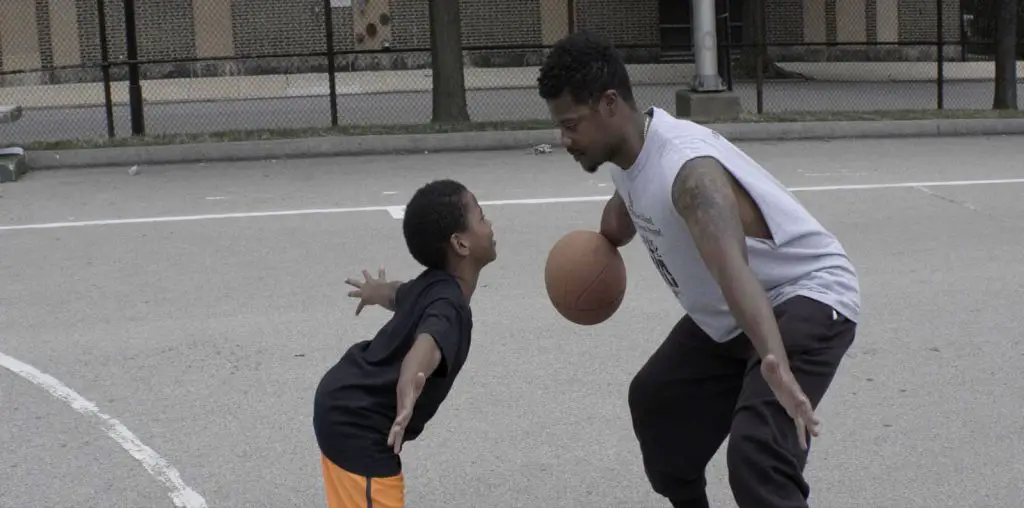
Upon announcement of the Oscar nominations certain patterns begin to form. Once you look past the two action films (“Gladiator” and “Crouching Tiger, Hidden Dragon”), you might notice, particularly in the Best Actor category, that the nominees are dominated by the stars of a few “Portrait of an Artist” flicks. You know what I’m talking about. These are the films that allow their stars to cut loose in showy roles famous artists during a certain period of their lives. Sometimes I wonder if the big motivation is for the actors to demonstrate that they can be self-destructive geniuses too. Geoffrey Rush is more than a little hammy, though good, as the Marquis de Sade in “Quills”. Javier Bardem is excellect as Reinaldo Arenas in “Before Night Falls”. Now the general public gets to see Ed Harris in the role for which he was just nominated, Jackson Pollock. Pollock was an early leader in the art movement known as Abstract Expressionism. For those who never get near an art museum, this style is meant to involve a pure expression of the unconscious without any attempt to mimic recognizable shapes and figures. Pollock is best known for his “drip technique”, where he would lay a canvas on the ground and proceed to drip the paint from his brushes held above. “Pollock” covers the artist’s life from the early 1940’s until his death in 1956. Basically the story picks us right before Jackson meets fellow expressionist painter Lee Krasner (Marcia Gay Harden), the woman who would become his wife and the one stabilizing force in his life.
Now if the film’s only goal was to convince an audience of Pollock’s historical importance, it would be doomed to failure. With something like Abstract Expressionism, you either walked in convinced of the artist’s greatness or you don’t. How you perceive it or what you prefer is extremely subjective to each person. If you don’t get it right away, then you really need to take the time to examine the actual paintings.
Ed Harris spent years trying to get this project off the ground and ended up making his feature directorial debut with this film. I’m sure he’s convinced about the significance of the art, but what seems to most fascinate him is the story of what it took in Pollock’s life to break through in a style new and radically different for the times. When we first meet Jackson, he’s already had a nervous breakdown, been hospitalized, and is a raging alcoholic. The outgoing Krasner is the one who first seems to believe in him and gradually helps him pull his life together (well, sort of). What Harris makes clear is that Pollock had some real problems that were never going away and the best you could hope for the guy is that he’d at least become fairly functional. As portrayed by Harris, Pollock’s self-destructive side is never that far below the surface. When he finally died drunk behind the wheel of a car the only surprise seems to be that it took so long. Of course his life wasn’t all a cry for help. The irony is that, despite the classic image of the tortured artist, the times when Pollock was most productive were also his most calm and stable. Krasner accomplished this in part by moving with Jackson to a farmhouse on Long Island where she could keep most of his distractions at bay, though they would often find their way to the new home. Some of the most poignant scenes are of Jackson interacting with his family, who generally look at him as if he was some alien creature dumped into their midst. They don’t understand him at all. One of his brothers is also an artist, but uses a different name to distance himself from his famous sibling. He doesn’t seem to get why Pollock is completely offended by this. While Jackson and Lee find some level of peace, it can’t last forever. Nobody stays on top forever, and when his career begins its downward slide, it takes a heavy toll on his psyche and his marriage. As such, the final act of the movie is like watching a train wreck. It’s painful to see but you stick around until the wreckage stops moving. It’s still a beautiful mess, and Harris and Harden have been justly rewarded for their brand new Oscar nominations. As a director, Harris proves to be a restrained and artful director, though the screenplay does occasionally slip into self-importance. You can decide for yourself if Pollock was a great artist. He wasn’t such a great man, but at least he got a pretty good movie.

